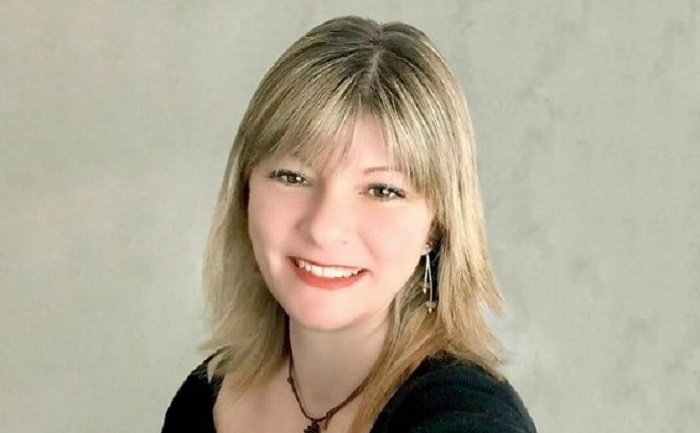DR. DANIELA IRRERA TO GULAN: The Security Council is dominated by power dynamics and stronger states’ preferences

Daniela Irrera is professor of Political Science and International Relations at the School of Advanced Defence Studies, CASD in Rome.
She is currently member of the ECPR Executive Committee, Chair of the ECPR Working Group on Academic Freedom, co-convenor of the BISA Working Group on Foreign Policy, associate editor of the Journal of Contemporary European Studies, co-editor of the Springer book series on Non-State Actors in International Relations, together with Marianna Charountaki, co-editor (together with Hana Kubatova) of the Blog Series on Constraints to Academic Freedom, as part of the ECPR blog TheLoop. She is Visiting professor of Political Violence and Terrorism at the OSCE Academy, Bishkek. She has been Visiting Scholar at several Universities and Research Centres in Europe, US and Asia. She has been Fulbright Scholar at the University of Delaware, US; DAAD Fellow at the Peace Research Institute Frankfurt; Visiting Professor at the European Union Center of Excellence, University of Alberta, Canada. She has been Associate Faculty at IBEI, Barcelona, teaching within the MUNDUSMAPP Erasmus Mundus program, Marie Curie Fellow at the Universidade Federal de Santa Caterina, Florianopolis, Brazil, and Open Program Fellow at University of Loughborough, UK. She has extensively published in the areas of International Relations and EU politics, dealing with global terrorism, transnational organised crime, civil society and humanitarian affairs.In a written interview she answered our questions like the following:
Gulan: Obviously, Ukrainian counteroffensive slowly ground to hold, and it seems like Russian forces have gained upper hand in the battlefield, what is your take away of this development, and where the situation is heading in your opinion?
Dr. Daniela Irrera:The situation on the battlefield has been quite changeable in these two years and there are no significant elements for making predictions. Analysis by scholars and analysts may differ and suggest divergent points of view. I believe that the nuclear threat continues to produce some effects, in terms of deterrence, but it is far from escalating into a war. No political power, including Russia, would have an interest in this.
Gulan: Some say that Ukraine's military hardware has burned through most of it and its manpower has run out, even NATO is reporting that the country's armament stockpiles are dangerously low and that political support for the proxy war is declining, so can we safely say that its all doom and gloom for Ukraine?
Dr. Daniela Irrera: Although it may look like that Ukrainian military forces are suffering on the ground, President Zelensky continues to gain support and to stabilize his power. The conflict may continue this way for longtime, unless it reaches a sort of stand-by condition focused on those regions, like Donbass, which are more exposed to hostilities. At the same time, many actors are already interested in the post-conflict environment and in the reconstruction process. The overall situation is highly unpredictable.
Gulan: In your perspective what the western world should and could have done differently to help Ukraine and to deter Russia from continuing its aggression and occupation?
Dr. Daniela Irrera: The Western world reacts to the frequent and ongoing attacks to the global order and stability according to their political interests and strategic preferences. The need to respect multilateral rules, to protect masses of people exposed to war and genocides and to stop violations of human rights are subject to the power dynamics and alliances. Therefore, it was hard to expect more impact and influence, especially in respect of the role of Russia.
Gulan: In recent days some western countries have imposed additional sanctions on Russia, but Russia has not only made an effort to withstand such sanctions; it has also made a concerted effort to permanently separate its economy from that of the West and integrate it with the non-Western world, so is it fair to say that these sanctions are and have been ineffective and even counterproductive?
Dr. Daniela Irrera: Sanctions are a tool of negative conditionality and have been frequently used by states for regulating relations with some other actors or for achieving stronger results. In the years, they have also been used in different and creative ways to adapt to different conditions. In all cases, an effect is produced. Russia has tried to integrate its economy into the non-Western world, but this also had very high political costs. Therefore, sanctions are maybe producing an effect which is different from the expected one, but they cannot be considered as ineffective.
Gulan: What would you say about the UN's inept role in the conflict between Russia and Ukraine? Do you think that the globe is now less safe as a result of this inefficiency? And this organization has to be reformed and reorganized?
Dr. Daniela Irrera: The UN follows the same argument. The Security Council is dominated by power dynamics and stronger states’ preferences, and it is impossible to produce a result which goes into an opposite direction. It is true that, during the decades the UN system has also been a place of socialization and adaptation. A reform is necessary, as the organization reflects a global order which is not existing anymore. However, any reform will have to pass through the intergovernmental relations and will be necessarily limited by the willingness of stronger states.
Gulan: Do you believe that a new set of values and guiding principles should be used to rebuild the present global order? If so, what essential elements would be part of that revised order?
Dr. Daniela Irrera: The multilateral order, which resulted at the end of the Cold War, was extremely promising and could have been used for promoting more equality, regularity in states’ performances and a lower propensity to war and violent escalation. It is not a new set of values that is needed, but rather a way for adapting the current ones to the present condition in an efficient way.















